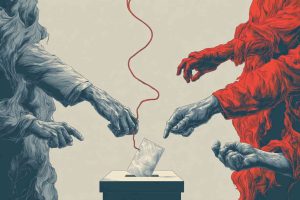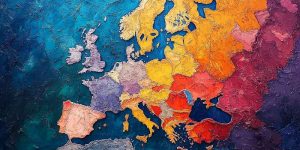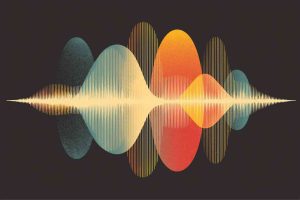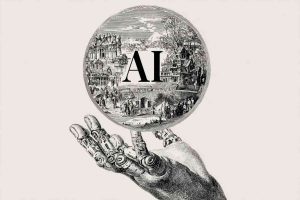The Illusion of Glory: How the Nobel Prize Became a Political Instrument
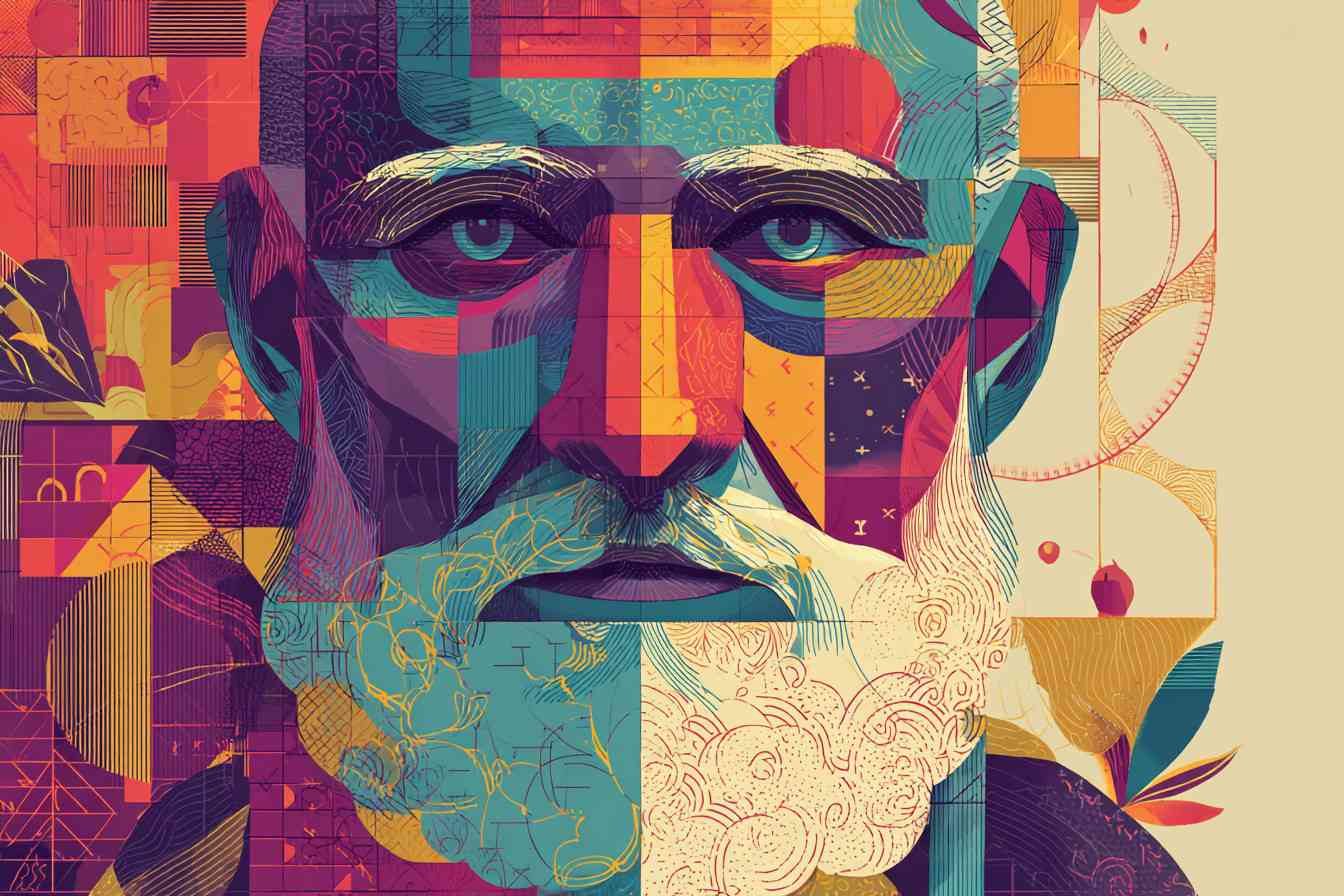
Once revered as the pinnacle of global recognition for scientific, literary, and humanitarian excellence, the Nobel Prize has gradually devolved into a stage for ideological favoritism, Western moral posturing, and soft power diplomacy. While Alfred Nobel’s testament called for awards to be given to those who “have conferred the greatest benefit to mankind, ” modern recipients are often chosen in ways that reflect strategic narratives more than genuine merit.
Particularly the Peace, Literature, and Economic prizes, have betrayed its founding vision by consistently rewarding political alignment, cultural dominance, and globalist orthodoxy, often at the expense of true progress, dissent, and diversity.
A myth of moral superiority
The ideal vs. the reality
Alfred Nobel’s vision was one of apolitical recognition. Yet, every institution tasked with administering these prizes is embedded within a national and ideological context. The Norwegian Nobel Committee, for example, is appointed by the Norwegian parliament, a NATO member, while the Swedish Academy that handles the literature prize has long been accused of elitism and internal scandal (Nobel Scandal Erupts in Sweden, New York Times).
Despite lofty language about impartiality, neutrality, and global unity, the Nobel system rewards compliance with Western narratives far more often than radical innovation or independent moral courage. This is especially visible in the Peace and Literature categories, where ambiguity and moral selectiveness reign.
The Nobel Peace Prize: politics in disguise
Barack Obama’s preemptive peace
Perhaps the most notorious example of ideological projection over achievement is the 2009 Nobel Peace Prize awarded to U.S. President Barack Obama. Having been in office for less than a year and with no peace deals under his belt, Obama received the prize for promoting a “new climate in international politics” (Why Obama Won the Nobel Peace Prize, The Nobel Committee).
This premature accolade overlooked his immediate expansion of drone warfare, the continuation of Bush-era surveillance programs, and eventual interventions in Libya and Syria. The justification of his award rested not on outcomes but aspirations, an overt signal of the Prize’s transformation into a moral investment rather than a recognition of achievement (The Drone Papers, The Intercept).
War criminals turned peacemakers?
More troubling is the historical pattern of awarding the Peace Prize to statesmen with controversial legacies. Henry Kissinger received the Nobel in 1973 despite having orchestrated coups and wars in Vietnam, Cambodia, and Chile. The award was so scandalous that two members of the Nobel Committee resigned in protest (The Case Against Henry Kissinger, Christopher Hitchens).
Others, such as Yasser Arafat, Menachem Begin, and even the European Union itself (2012), received the Peace Prize not for lasting peace but for politically symbolic efforts. That EU award came at a time of deepening economic hardship across Southern Europe, following austerity measures imposed by Northern European states. Peace, in these instances, seems to mean “stability on Western terms, ” regardless of the actual human cost.
The glaring absence of whistleblowers
The Peace Prize’s ideological slant is perhaps most evident in who doesn’t receive it. Julian Assange, Chelsea Manning, and Edward Snowden have each exposed massive state abuses and triggered global debates about war, surveillance, and freedom. Yet, none have been honored, likely because their revelations indict the very powers the Nobel system tends to flatter. Recognition of such individuals would demand genuine moral courage from the committee, which is consistently lacking (The Nobel Peace Prize Is Political, Glenn Greenwald).
Literature as cultural imperialism
A Eurocentric echo chamber
Of the over 120 Nobel laureates in literature, more than 80% have been from Europe or North America. African, Asian, and Latin American voices remain significantly underrepresented, and when they are included, it is often those who adopt Western literary forms or express Western-approved political critique (The Nobel Prize in Literature: Eurocentrism and Bias, Le Monde Diplomatique).
The committee’s idea of “universal literature” is deeply rooted in Western notions of individualism, humanism, and secularism. Writers who diverge from these paradigms or who criticize Western hegemony rarely find favor, regardless of their literary brilliance.
The pop-culture turn: Bob Dylan
In 2016, the Nobel Committee stunned the literary world by awarding the prize to Bob Dylan, a musician. While his lyrics are celebrated in American culture, many questioned whether they could be equated with literature in the traditional sense. Critics argued that this choice cheapened the literary award and pandered to cultural populism (Bob Dylan wins Nobel Prize in Literature, The Guardian).
The Dylan award marked a turning point: the Literature Prize became less about intellectual depth and more about media resonance. Meanwhile, novelists and poets producing groundbreaking work in less globally dominant languages continue to be ignored.
The scientific prizes: excellence, but not equity
Recognition gaps and gender bias
Though science prizes are perceived as more objective, they too reflect systemic bias. The restriction to only three recipients per prize often results in the exclusion of key contributors, especially women and researchers from developing countries. The case of Rosalind Franklin, whose X-ray images were instrumental to the discovery of DNA’s structure, remains one of the most cited injustices in Nobel history (Rosalind Franklin and DNA, Brenda Maddox).
Similarly, pioneering work in climate science or renewable energy has often been overshadowed by more traditional physics and chemistry fields, suggesting a conservative bias in what the committee deems “prize-worthy.”
Geopolitics in scientific prestige
During the Cold War, Soviet scientists were systematically overlooked. Today, Chinese researchers face similar marginalization. As global scientific leadership shifts eastward, the Nobel’s reluctance to acknowledge these contributions suggests it still functions within a Western ideological framework (The Politics of Science Awards, Nature).
Even in medicine, many laureates hail from elite Western institutions, often building upon data and fieldwork gathered in the Global South, a pattern some describe as “intellectual colonialism.”
The Prize in Economics: capitalism’s sacred cow
A fake Nobel?
The “Sveriges Riksbank Prize in Economic Sciences in Memory of Alfred Nobel” was established in 1969, not by Nobel, but by Sweden’s central bank. It carries the Nobel name, yet it was never part of the original set. Economists like Friedrich Hayek and Milton Friedman, celebrated for their neoliberal ideas, have long dominated the list of laureates.
Critics argue that the economics prize disproportionately rewards theories that justify deregulated markets, fiscal austerity, and centralized monetary control, ideas that benefit global finance but often undermine social welfare (The Nobel Prize and Economic Ideology, Ha-Joon Chang).
Ignoring radical alternatives
Economists who challenge the growth paradigm, question globalization, or advocate for degrowth and environmental sustainability rarely receive attention. The economic prize enforces a narrow ideological consensus, not an open contest of ideas. It has yet to honor those who predicted the 2008 crash, advocated public banking reforms, or exposed systemic inequalities at the heart of neoliberal globalization.
Economist Mariana Mazzucato, who highlights the role of the state in innovation, and Thomas Piketty, who has made wealth inequality a global issue, remain glaringly absent from the laureates list, likely because their work threatens dominant economic institutions.
Institutional opacity and power politics
Lack of accountability
The Nobel committees operate in almost total secrecy. Nominations are kept classified for 50 years, and selection criteria are not transparent. This allows room for lobbying, bias, and political maneuvering. Allegations of insider favoritism have plagued the Swedish Academy for years, culminating in a sexual abuse scandal that forced it to cancel the 2018 Literature Prize altogether (Nobel Scandal Erupts in Sweden, New York Times).
The “NATO Prize”
Especially in the Peace category, the Nobel Prize often appears to favor NATO-aligned figures and institutions. Whether it is the EU in 2012 or Ukrainian journalist groups in 2022, the narrative is consistently aligned with Western geopolitical priorities. Voices advocating peace from outside the Western sphere, such as anti-NATO activists, peace movements in the Middle East, or Russian dissidents not aligned with U.S. interests, are largely invisible.
Conclusion: the Nobel myth unmasked
The Nobel Prize may still inspire awe, but its authority is built on selective vision, not universal truth. It rewards narratives that support dominant power structures while marginalizing those who challenge the status quo. It glorifies symbolism over substance, politics over principle.
As George Orwell famously said, “All awards are political.” The Nobel Prize, for all its golden shine, may be the most political of all, a polished relic that masks Western ideological dominance with the language of progress and peace.
The time has come to demystify the Prize. True recognition of human achievement should reflect the diversity, complexity, and plurality of human experience, not the interests of a cultural elite cloaked in moral superiority.
References
- Why Obama Won the Nobel Peace Prize, The Nobel Committee
- The Drone Papers, The Intercept
- The Nobel Peace Prize Is Political, Glenn Greenwald
- The Nobel Prize in Literature: Eurocentrism and Bias, Le Monde Diplomatique
- Bob Dylan wins Nobel Prize in Literature, The Guardian
- Rosalind Franklin and DNA, Brenda Maddox
- The Politics of Science Awards, Nature
- The Nobel Prize and Economic Ideology, Ha-Joon Chang
- Nobel Scandal Erupts in Sweden, New York Times
- The Case Against Henry Kissinger, Christopher Hitchens

